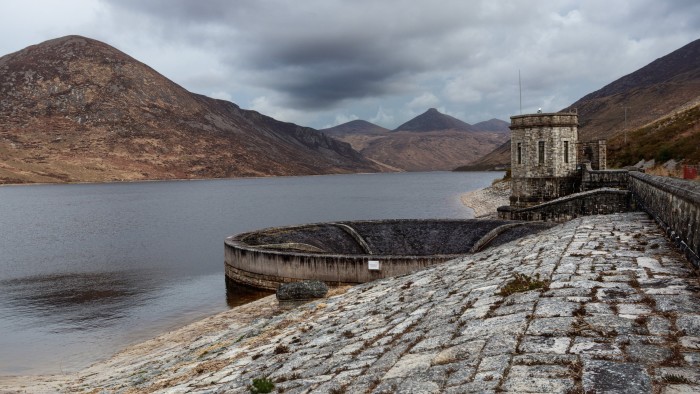Unlock the Editor’s Digest for free
Roula Khalaf, Editor of the FT, selects her favourite stories in this weekly newsletter.
Northern Ireland’s executive faces the “inescapable” prospect of having to start charging households for water to help fund its infrastructure needs, the region’s budgetary watchdog has said.
The warning on Tuesday, from the independent Northern Ireland Fiscal Council, came a day ahead of the UK government’s spending review in which the region’s Stormont executive is hoping for an increase in its funding from London.
The region’s strained finances have hampered much-needed investment in infrastructure. Some large new housing developments have been put on hold because publicly owned Northern Ireland Water is unable to provide sewage services.
Northern Ireland is the only part of the UK where households are not billed for their water use, and Stormont opposes such a move.
“Additional revenue raising, from domestic water charges and/or from other sources, appears inescapable if NI Water is to be given the resources necessary to deliver high quality and environmentally sustainable services and to be able to support residential and commercial development needs,” the Fiscal Council said in a report.
Hilary Benn, the UK’s Northern Ireland secretary, told the Financial Times last week that “water infrastructure is a constraint but the responsibility falls on the Northern Ireland Executive to deal with that”.
Northern Ireland is largely funded via a block grant from the UK government — it will receive a record £18.2bn in 2024-25. The formula on which this is based has been increased to £124 for every £100 spent in England, from £121 previously.
But Esmond Birnie, a member of the Fiscal Council, said the formula was expected to rise again in the UK spending review on Wednesday because farm subsidies — which had been funded by the EU and then by the UK government after Brexit — were now a Stormont responsibility.
“Per head, our funding for farming is three to four times that of England, so this is going to be a challenge,” Birnie told the FT. “There has to be an adjustment [to the formula], but how generous will it be? It will probably go from £124 to £127-£128.”
Benn declined to give details of any measures for Northern Ireland in the spending review.
NI Water is just one of many competing pressures on Stormont’s strained finances. The region has the longest health service waiting lists in the UK.
The Fiscal Council said NI Water’s funding model was “unique and increasingly unsustainable”. In lieu of domestic water charges, it receives about £300mn per year from Stormont’s budget “that could otherwise be directed towards other pressing public service needs”.
The region’s Utility Regulator believes NI Water needs to invest £1.5bn by the end of its current budget period in 2028, but Stormont’s Department for Infrastructure has recommended that it plan for a “reasonable worst-case scenario” of capital funding of £992mn.
NI Water estimates it would take 18 years of above average real-terms investment to deal with its infrastructure backlog.
When NI Water was set up in 2007, Northern Ireland had intended to introduce water charges but deferred them because of the financial crisis.
Ronan Larkin, NI Water finance director, told the FT the utility was “not advocating for charges — we are agnostic”.
“There is really no silver bullet in terms of raising more revenue,” said Sir Robert Chote, chair of the Fiscal Council. “It does look to us that the trajectory is unsustainable without some more revenue from somewhere.”
But with the UK government’s own budget constraints, he added: “It’s quite difficult to imagine it coming from the UK government.”




